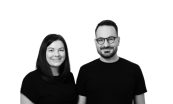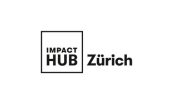
February 2016
Entwine | Bringing open source lecture capture to universities worldwide
This is the story of Entwine, a company that was built to bring open source lecture capture to universities worldwide.
Almost 5 years to the day, my partner-in-crime Andy Wasklewicz and I met in the city of Zug and founded Entwine. We had crossed paths roughly a year beforehand as members of Opencast, a young community aiming to establish the use of lecture capture systems in higher education. These tailored systems consist of a combination of hardware and software for recording lectures and making them available online for both students to recap and interested parties to participate in remote study.
At the time, Andy had been working on instructional building technology at the University of Stanford, while I had been busy getting ETH's first incarnation of a lecture capture system off the ground. During our few encounters at the community meetings, Andy and I quickly agreed that, not only were we getting along quite well, but also that we saw potential in using our combined skillset to move the lecture capture space forward with a strong focus on the teaching and learning side. At the time, the engaging Opencast community seemed like the perfect driving force behind the development of an advanced platform and something that would provide our future business with the relevance required to pitch to larger clients, make strategic hires or talk to potential investors.
Like every other startup, Andy and I spent many weeks putting together version 1.0 of the company’s business plan and fought through a sizeable number of (mostly beneficial!) “debates” as we formulated both the vision and company goals. If you are serious about your business idea and believe in your company changing the world, this phase is indispensable as it will provide the young business with the culture (amongst other things). And whilst our vision was there to guide business decisions along the potentially long and windy roads, almost each and every figure that we had "estimated" (read: guessed) as part of projected number of clients, potential revenue etc., had been overcome by events only a few months into the game.
Looking back and holding the business plan against how the company was eventually shaped and run before it was acquired during the summer of 2015, what remained crucial was the strong vision and the formulated cornerstones of our company culture, as these things governed most of our decisions along the way.
Leave home to grow up
Another thing we were insistent on was hiring talent vs. building a team. Initially, everyone we brought in we had previously known, hence trusting that they would not only perform well but also be able to work and stand together as a team. Early startups rely on few but strong shoulders, hence stability and loyalty are crucial. At Entwine, we were extremely lucky to have found young, motivated and talented people that we could count on over the company’s entire lifetime.
Being a self-funded startup, there wasn't a lot of money around to pay high salaries, provide benefits or launch major team events on a regular basis. In order to balance this, we put effort into keeping the team happy and motivated by introducing little things like our weekly Wine Friday and the regular doses of Tischfussball - all aimed at making everyone's workday a little more relaxing and fun!
Even after five years, most of the initial team are still with us, demonstrating that working at Entwine was interesting and challenging, with its active involvement in a global open source community, contracts with Ivy League schools and the opportunity to not only improve one's English but meet and work with colleagues as far away as Saskatoon, Canada.
The French philosopher Jean Paul Sartre states that the individual is only defined when interacting with others. To me, this suggested being amongst others defines one’s identity. This in turn ultimately applies to a company’s identity or culture too. As such, when office space for a team of four "Entwinees" was needed, we decided to be amongst other hard working tech startups at "Colab Zürich", Panter's coworking space which would eventually join Zurich's Impact Hub.
The best part about working there turned out to be the experienced, amazingly friendly and supportive people. Ultimately, being amongst like minded people, who help you reflect and validate your ideas and beliefs is a huge benefit.
Need a lawyer with a proven track record? Require help putting together your first support contract? The fine people at Colab were happy to help, but also to learn from the knowledge and experience we were gaining as time went by. With the great mix of young startups and established companies like Panter and Impact Hub, there was almost always someone there to point us in the right direction. Last but not least, getting a startup off the ground and keeping it afloat is constant, hard work. Being at work late with others sharing your determination and pain, definitely helps you keep going and puts things into perspective.
Gut feeling and data: or live and learn
As with every young business, we learnt our lessons, more often than not the hard way. If we were to offer a single tip, it would be to put process, an initial level of administration and documents, such as the general terms and conditions, support contract etc. together early on while there is still time – Remember that you are always only one client away of being not only understaffed but also completely overwhelmed. The comprehensive needs assessment document, in which we invested untold work, quickly turned into a highly effective "business" card that could be handed to potential clients and convince them of our professional approach.
My number one takeaway however was that there are two complementary approaches to running a business: Gut feeling and data. When combined, chances of success are as high as they can get. When it comes to gut feeling, there unfortunately, is no “app for that”. The good news however is that a thousand and one tools are out there to support gathering data about client involvement, engineering hours spent per support case, financials, sales pipeline... you name it!
Initially, nothing else but our gut feeling was able to guide us. The longer the business was running, and the more data we collected, the more we were able to "assist" our gut feeling with hard data. Trusting your gut feeling and living off gained experience is not necessarily a bad thing. But as the world around us changes, any data gathered helps a great deal to align reality to gut feeling and experience.
Do it yourself (or how to be successful the hard way)
For 99% of the startups, including our own, the number one burning issue is cash flow. Entwine started with a mere CHF 25K seed funding, which was only possible because from day one we were lucky to have paying clients, whom we handled with great care and a lot of enthusiasm, spending significant effort to keep them happy.
When Entwine was launched, Andy and I turned from regular Opencast community members to vendors. Suddenly, we were closely watched since other members of the community more or less openly disliked the idea that others would be making money off "their" work. It took time for everyone to realise how having a commercial vendor be part of the community helps grow its significance and how the sheer existence of such a vendor ultimately allows decision makers to opt for open source products, simply because there is a phone number to call in case of issues with the product.
Entwine’s goal was to grow the community through sharing, collaboration and donation of all product improvements resulting from client contracts. Part of this involved suggesting and financing architectural ideas and work proposals that nobody else was willing to take on. We were gathering numerous institutions that were also happy to fund the small items of work which all went back to the community thereby improving "their" product.
It was great to see how motivation amongst the community members grew at the realisation that combining funds and investing them into work performed at Entwine would yield larger pieces than each of them would have been able to bite off individually.
Needless to say that not every piece of work we performed on behalf of clients marked a milestone on the "lean" trail to our own product vision. On the other hand, it helped generate a piece of software that was 100% user driven, with a lot of early adopters providing quick and solid feedback. Overall, this way of doing business not only meant regular income to pay salaries, but also led to an ever improving product, which in turn grew the market for the professional services we were offering and ultimately laid down the technical foundation for Entwine’s future products.
Keep looking for the silver lining
Andy and I had been ready to throw in the towel more than once, and in hindsight, a lot of things played out well. We had managed to make our clients realise that we were sharing the same vision and that the people at Entwine worked really hard to turn that vision into reality. In return, our clients became the best salesforce one could ever wish for.
As to the vision, by that time we had merely laid the foundation for what we were going to build, and due to the fact that sharing with the community meant little scalability of work effort (when you open source, you can’t sell a piece of work twice), it became obvious that we wouldn’t succeed without larger investments.
On the positive side, five years of tireless work had yielded a strong and highly motivated team of engineers with an immense amount of knowledge in the space and we were successfully developing a reputable piece of software that was on track to conquer a growing market. All while the guidance and support of the growing open source community, which was being watched by many higher education institutions worldwide, helped us navigate the waters.
When Extron Electronics entered the scene in late 2014 and announced their capture hardware to be compatible with Opencast's software, it took little time to realise that Entwine was the perfect partner for them to work with on client projects. Not surprisingly, these clients eventually started asking for an end-to-end solution from Extron, who had been known for their excellent hardware and support, the management team at Extron identified their next move: Buy an engineering shop with expertise in the field, a working product and ideally a good reputation for supporting their clients.
In August 2015, after only two months of intense negotiations (worth a blog post of its own), Entwine became a part of Extron Electronics and is now working to establish the U.S. company as a major global player in the lecture capture market.
Subscribe to Our Newsletter
Never miss an update – sign up for our newsletter published every 3-4 weeks and stay connected with our community.



